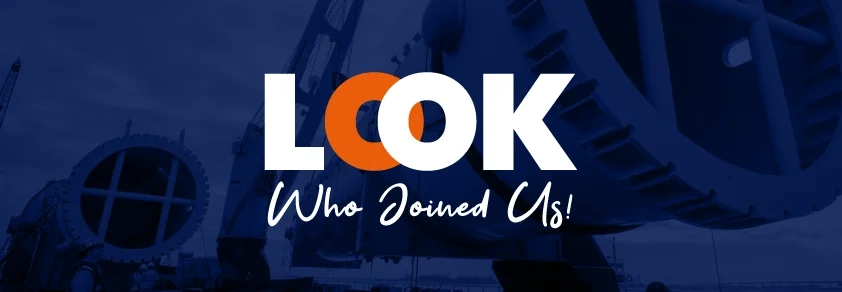List of Army Heavy Equipment Transport Companies in OPCA
The Overseas Project Cargo Association (OPCA) brings together an exclusive group of freight forwarders specializing in military freight and heavy equipment transport. These expert companies are equipped to handle the complexities of moving oversized military cargo, including military trucks, tanks, and other heavy military equipment. Whether it's by military transport aircraft or military cargo ship, OPCA members provide end-to-end logistics solutions tailored to the unique needs of the defence industry.
OPCA’s network includes military moving companies experienced in both domestic and international military shipping. These companies are skilled in managing the complexities of military freight forwarding, ensuring secure, on-time delivery of critical materials to remote or high-risk locations. From military heavy haulers to military trucking companies, our members have the expertise to haul military freight safely and efficiently.
For businesses in need of specialized logistics services for military equipment, OPCA offers access to a global network of trusted military freight carriers, ready to meet your needs with the highest level of professionalism.
OPCA for Reliable and Secure Military Equipment Transport Services!
Are you looking for reliable and secure military heavy equipment transport services? OPCA provides a trusted network of military moving companies specializing in the transportation of oversized, heavy military cargo. Whether it’s hauling military equipment across domestic or international borders, OPCA members offer efficient, secure, and compliant logistics solutions. From army heavy equipment transporters to military car shipping companies, our members are experts in managing complex defence logistics.
By joining OPCA, you gain access to a global community of professionals experienced in military freight companies and trucking companies that haul military equipment. OPCA’s network is built on trust, safety, and excellence, allowing our members to offer the highest level of service in military freight forwarding and military heavy equipment transport.
Streamlining Logistics for Military Freight
Streamlining logistics for military freight involves a set of specialized processes that ensure the timely and secure transport of crucial military equipment. The transportation of military heavy equipment requires advanced logistical planning and coordination across multiple freight modes. These shipments often involve oversized, sensitive cargo that must comply with strict security and regulatory standards.
Military moving companies are crucial in providing efficient transport solutions, whether it’s for large-scale military operations or specific equipment needs. With the help of specialized military freight forwarders, these companies ensure that shipments adhere to international trade regulations while maintaining the highest standards of safety.
When considering military freight services, companies that handle military freight or hauling military equipment offer a wide range of tailored solutions. These include trucking companies that haul military equipment capable of managing complex logistics, from road transport to rail and sea freight, guaranteeing on-time deliveries even under the most challenging conditions.
Choosing the right partner to handle military freight logistics is essential to minimizing risk and ensuring that sensitive shipments arrive on schedule. By working with military freight companies, businesses can streamline their supply chains, reduce costs, and meet the evolving demands of military operations.
Key Challenges in Military Cargo Ship
Shipping military cargo is a highly specialized task that involves several challenges, particularly when dealing with oversized equipment and high-security shipments. Unlike typical freight, military shipments often require precise planning and adherence to strict regulations. Here are the key challenges faced by logistics professionals in the military cargo sector:
Handling Heavy and Oversized Equipment: Military equipment such as tanks, vehicles, and heavy machinery are often large and cumbersome. These shipments exceed standard cargo limits, requiring customized transport solutions such as army heavy equipment transporters and low-loader trailers to ensure safe and efficient delivery.
Navigating Restricted and Remote Locations: Many military shipments need to reach destinations in isolated or conflict-prone areas, where infrastructure may be limited or unstable. Logistics providers must meticulously plan routes, which can include air, sea, and land freight, while considering political and environmental factors that may affect access.
Adhering to International Security Regulations: Military cargo is subject to stringent security protocols and regulatory controls. Compliance with export laws, customs procedures, and safety requirements is crucial to prevent delays and ensure that sensitive materials are protected throughout the transport process.
Mitigating Risks and Ensuring Cargo Protection: Due to the high value and sensitivity of military freight, risk management is a top priority. Freight forwarders must implement secure transport measures, including tracking systems, armed escorts, and insurance coverage, to safeguard the cargo against potential theft, damage, or loss.
Time Sensitivity and Coordination: Military operations often rely on timely delivery, and delays in cargo shipments can have serious consequences. Effective coordination among military freight forwarders, customs agents, and transportation companies is essential to ensure that all logistics processes are executed efficiently and according to schedule.
Geopolitical Risks and Cybersecurity Threats: Geopolitical factors can dramatically affect military logistics, especially when navigating conflict zones or politically unstable regions. Moreover, cybersecurity threats are increasingly becoming a concern as military supply chains rely more on digital technologies for tracking and management.
Regulatory Compliance: The military industry is bound by strict regulatory frameworks governing the transport of sensitive materials. Compliance with international laws and security regulations is critical to ensuring smooth operations and avoiding costly delays.
Complex Nature of Military Logistics: The integration of different transportation modes and handling of diverse cargo types make military logistics highly complex. Effective risk management and adaptability to changing global conditions are critical for overcoming these challenges.
Frequently Asked Questions (FAQ) About Army Heavy Equipment Transportation
What are the key safety protocols for transporting military heavy equipment?
Transporting military heavy equipment requires strict adherence to safety protocols to ensure the secure delivery of sensitive and valuable cargo. The following key safety protocols are essential when handling military equipment:
- Risk Assessment and Planning: Evaluate cargo, route, and potential risks.
- Secure Loading: Use specialized equipment to safely load and secure heavy cargo.
- Escort and Monitoring: Armed escorts and GPS tracking ensure security.
- Regulatory Compliance: Ensure all permits, customs clearances, and security protocols are met.
- Insurance Coverage: Arrange insurance to cover potential damage or loss.
- Handling Hazardous Materials: Follow safety measures for any hazardous cargo.
- Route Coordination: Plan secure, efficient routes and coordinate with authorities.
What is the difference between military heavy equipment transporters and civilian ones?
Military heavy equipment transporters are specifically designed and equipped to handle the unique demands of transporting military assets, such as armored vehicles, weapons systems, and other defense-related equipment. These transporters are often more robust and equipped with specialized features, including enhanced security measures, the ability to navigate through rugged or remote terrains, and military-grade tracking systems. Additionally, they must comply with strict security protocols and regulations. Civilian transporters, on the other hand, are generally used for non-military cargo and are designed for standard freight requirements. They typically do not include the same level of security, are not built to carry defense-specific loads, and may not be as equipped to handle challenging environments or complex logistics requirements.
What permits are required for cross-border military equipment transportation?
Cross-border transportation of military equipment requires a range of specialized permits to ensure compliance with international regulations and security protocols. These typically include export and import permits issued by the relevant national defense authorities, ensuring the shipment complies with international arms control agreements. Additionally, permits for transporting oversized or hazardous materials may be required depending on the nature of the equipment. Customs clearance documentation is also necessary to ensure the smooth entry and exit of military cargo at borders. Special transit permits may be needed for the passage through certain regions or countries, especially those with strict regulations on military shipments. Furthermore, each country involved in the transportation route may have specific security and compliance requirements, including vehicle inspections and tracking protocols.
What vehicles are used for transporting military heavy equipment?
Transporting military heavy equipment requires specialized vehicles capable of handling oversized, heavy, and often sensitive cargo. These include heavy-duty trucks such as low-loader trailers, which are designed to carry large, heavy vehicles and machinery. Flatbed trucks are used for equipment that can be loaded from above or the sides. For extremely oversized loads, modular trailers provide flexibility and can be configured to suit the size and weight of the equipment. Tank transporters are specifically designed for transporting military tanks and armored vehicles. In some cases, military transport aircraft or cargo ships are used for long-distance or international transport, particularly when land transport is not feasible. The choice of vehicle depends on the size, weight, and destination of the equipment, as well as any specific security or regulatory requirements.
How do international regulations impact defence industry freight forwarding?
International regulations, such as ITAR (International Traffic in Arms Regulations) and export control laws, impose strict guidelines on the movement of defence-related goods. Freight forwarders must comply with these rules to ensure legal and safe delivery, avoiding penalties and ensuring the security of the goods being transported.
How does OPCA support its members in the defence industry?
OPCA provides its members with a high-tech platform to share resources, best practices, and access specialized services. Members benefit from a network of experienced logistics professionals who can handle big and oversized cargo, including military goods as well as steel mills, power generation, renewable energy and petrochemical plants.
_logo.webp)



